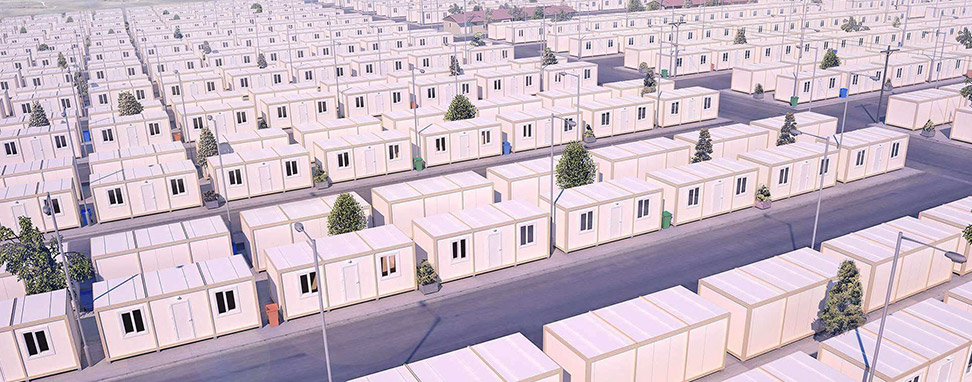Prefabricated modular housing systems have gained immense popularity in recent years due to their numerous advantages. One of the most significant advantages of these housing systems is their exceptional water and electricity prefabrication capabilities. These capabilities provide various benefits to homeowners, builders, and the environment.
First, water and electricity prefabrication ensure that the fittings and connections in the housing system are up to standard. Using conventional construction methods, the installation of water and electrical lines is performed on-site, and this process is often time-consuming and error-prone. On the other hand, modular housing systems are built in a controlled environment. As such, prefabrication ensures the fittings and connections are of consistent quality and avoid costly reworks in the installation process. The result is that homeowners can be confident that they have reliable access to clean water and electricity.
Second, water and electricity prefabrication help builders save time and money. With conventional construction methods, construction sites are often messy, cluttered, and disorganized. Builders need to clean up the site after every working day, which costs time and labor. Also, builders bear the brunt of weather conditions, which can halt work for days or even weeks, leading to delays and cost overruns. However, with modular housing systems, construction occurs in a controlled environment away from the construction site. The building process is faster, more efficient, and it is less impacted by outside weather conditions. Consequently, builders can complete a project quickly and with fewer resources, thereby cutting down on construction costs.
Third, the prefabrication of water and electricity in modular housing systems has a significant impact on the environment. Traditional construction methods generate a lot of construction waste, which ends up in landfills. In contrast, modular housing systems are designed to reduce waste, and the waste generated during the production phase can be recycled or reused. Thus, modular housing systems promote environment-friendly practices that conserve natural resources and help to reduce pollution levels.
Finally, the modular approach to housing offers infinite design possibilities and flexibility. The systems can be configured in different ways, allowing the homeowner to choose the design, style, and functionality that best suits their needs. Moreover, modular housing systems can be expanded or reconfigured, if necessary, without the need for substantial demolition or reconstruction work. Therefore, homeowners can have homes that are dynamic, functional, and can accommodate their evolving lifestyle and changing family needs.
In conclusion, the prefabrication of water and electricity in modular housing systems offers numerous benefits to homeowners, builders, and the environment. From better quality control in the construction process to faster construction times, and a lower environmental impact, modular housing systems have been proven to be a superior housing option. They offer homeowners flexibility and a range of design options, and ultimately provide a comfortable and reliable living space. As the world becomes more concerned with environmentally sustainable practice, prefab houses with water and electricity prefabrication are increasingly becoming the go-to option for those wanting to invest in sustainable living.








